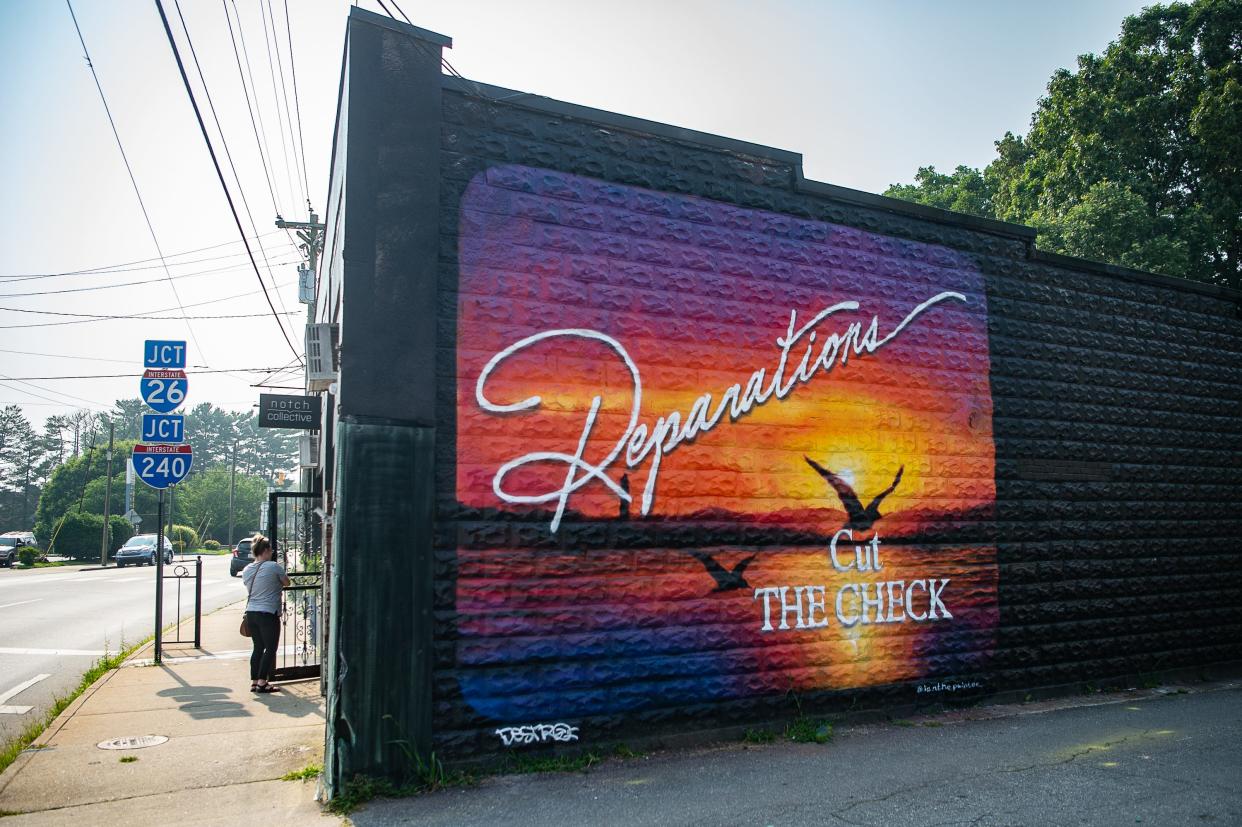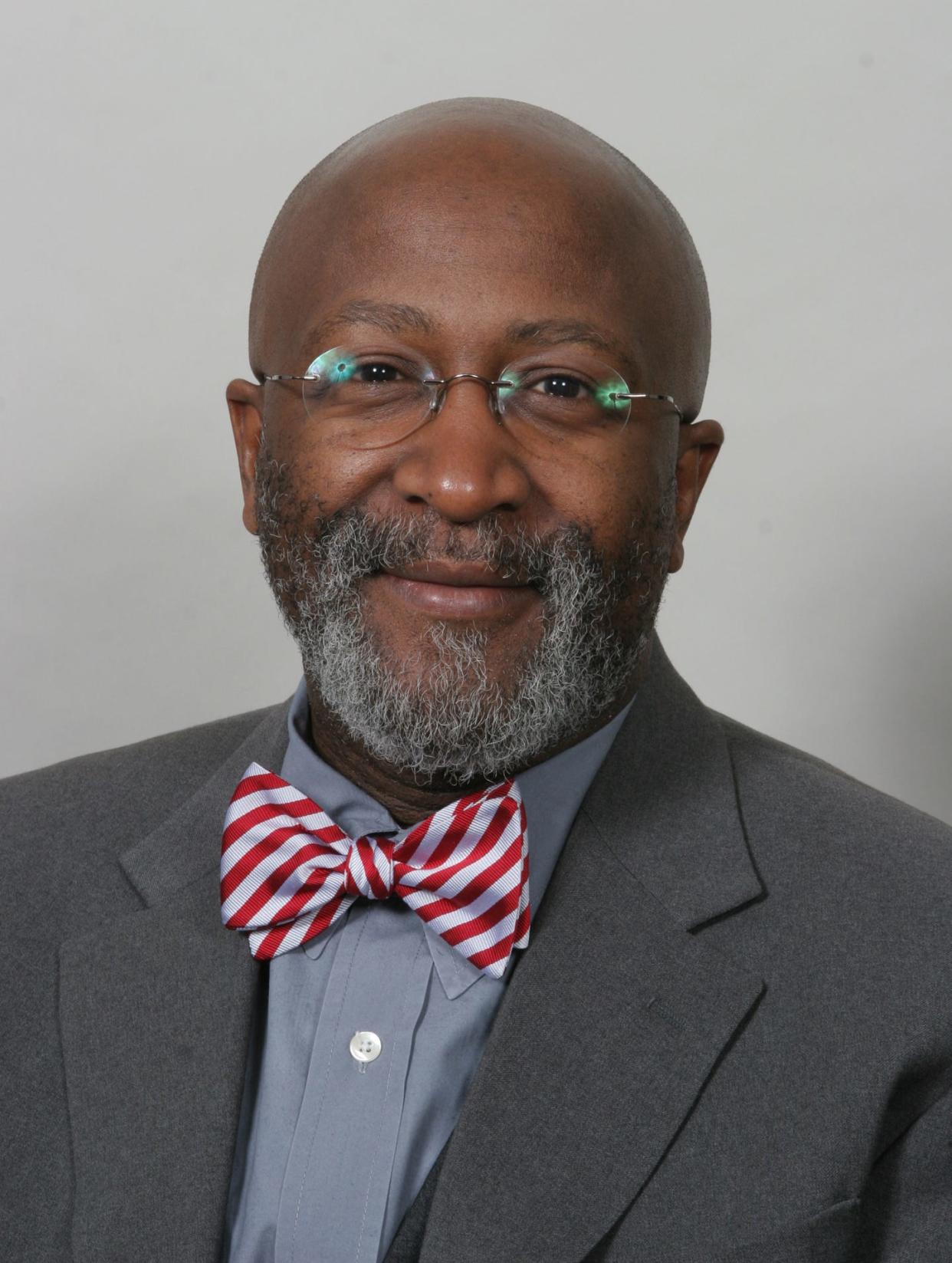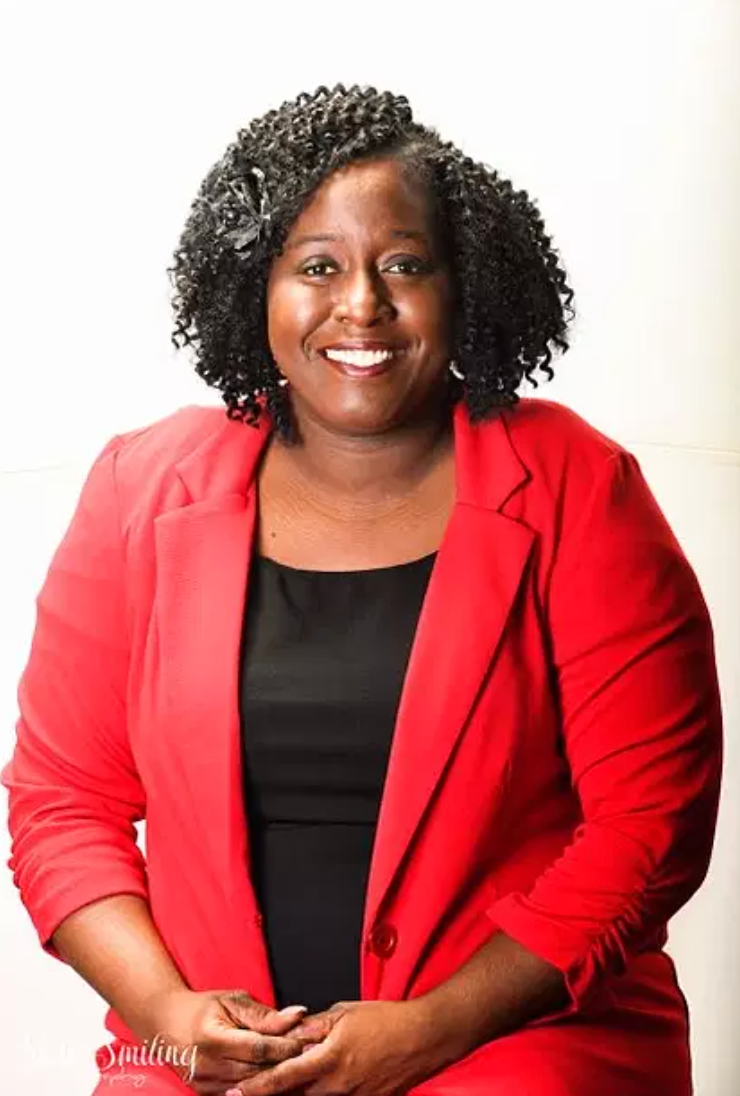Who applied for Asheville's historic reparations commission? Council to select 5 members

With the Community Reparations Commission slated to be seated in March, Asheville City Council has received its pool of 18 names, five of which will be selected to help guide the historic process.
"I’m old enough to know that when history is happening, you really often don’t recognize it," said Dwight Mullen, a retired political science and Africana studies professor at UNC Asheville. "But I think this is a moment when we are actually making history."
Mullen is among the commission's applicants, which range across race, age, gender and expertise.
Nine of the 18 applicants are natives of Asheville, others relative newcomers or those who weren't born here, but have made the city a home for decades, like Mullen.
At its Feb. 8 Boards and Commissions Committee meeting, members will select which of the applicants for the full council to interview, a process that will begin Feb. 22, with recommendations provided to council for approval.
Asheville reparations: 55 apply for commission; 25 to be seated in March
Asheville Director of Equity and Inclusion Brenda Mills, who manages the reparations process for the city, said the 25-member commission will be seated in March.
Together, the city selections, county selections and those nominated by legacy neighborhoods will develop recommendations for what form of compensation Black residents should receive for historic wrongs.

For Mullen and many of the applicants, it's personal.
When Mullen and his wife moved to Asheville in 1984, both to take teaching jobs at UNCA, he said he was denied housing.
When Mullen arrived at showings, the houses would "suddenly be taken off the market," he said, and it took the chair of his department making calls and writing a letter of introduction before he could find a place to rent.
UNC Asheville: 4 of the first Black professors retire after decades of inspiring young minds at UNCA
It's instances of systemic racism like these — in housing, health care, education and more — that demand a response. Mullen hopes the city's reparations effort will begin to address deep-rooted issues.
"It’s the first time I’ve seen the city and the county jointly act to address the vestiges of Jim Crow segregation," he said.
“When a community has suffered like I think the Black community in Asheville and Buncombe County have suffered over the decades, it’s hard to get people to immediately step up and directly change it, because why should they believe that it’s ever going to change?" Mullen said.
But as the effort continues to move forward, he has hope that change will follow.
How is the commission selected?
Ultimately, City Council and the Buncombe County Board of Commissioners will each select five applicants. Those will be selected based on experience in criminal justice, economic development, education, health and wellness, and housing — areas identified in the council's reparations resolution.
The other 15 seats on the commission are reserved for representatives nominated by “impacted neighborhoods,” including Burton Street, East End/Valley Street, Shiloh, Southside, Stumptown, Heart of Chestnut and public housing communities.
Equity and inclusion: Asheville names equity and inclusion director: Brenda Mills
These neighborhoods will select their nominees from the 29 neighborhood applicants, with two representatives each from the neighborhoods, and three from public housing.
The selections will be made with no oversight from the city, falling entirely to the legacy neighborhoods, and will be presented to TEQuity on Feb. 15, the Durham nonprofit picked for a $366,000 contract to manage the Community Reparations Commission.
The hiring of TEQuity and the amount of the contract drew criticisms from Keith Young, the former City Council member who wrote the city's historic initiative, when it was announced in September 2021.
Related reading: Asheville reparations architect Keith Young criticizes city's $366,000 outside contract
After an 18-month process, the Reparations Commission will make short, medium and long-term recommendations to City Council, with a final report and evaluation coming in late spring 2023.
Who applied for the commission?
The application process closed Jan. 15 with 54 applications, said Mills.
Of these, 18 were for the city, seven for the county and the remaining 29 were neighborhood applicants.
Of the 18 city applicants, 12 identified as Black, four as white, and one applicant as biracial.
Anyone was welcome to apply; applicants did not have to be Black or directly impacted by systemic racism.
Fifteen women applied and three men.
Of the applicants, 10 indicated they had been a resident of public housing or an impacted neighborhood in Asheville.
Each focus group had at least one application, but education, housing and economic development had the most interest, with seven applicants ranking education as their top interest, and housing and economic development tying with four.
Age ranges varied, but the 35 to 44 age group had the most applicants, with six.
An intentional effort

Dewana Little, executive director of the YMI Cultural Center, said she applied to ensure the center has a seat at the table.
As a native of Asheville, Little said she has felt the impacts of marginalization both directly and indirectly, and wants to be part of developing a solution.
After hundreds of years of slavery, and rights and freedoms that have been historically stripped away, she said the commission's success depends on it being an "intentional process," and a true commitment to change.
"Asheville is plagued with systemic racism that maintains the status quo of comfortability for the major and further minimizes or excludes the minority," Little wrote in her application.
Reparations: Asheville Office of Equity & Inclusion finally hires staff, moves forward with reparations
"It's a system that was built at a time that black people were considered property so, it wasn't built to include us. With all of the Good intentions of people here in Asheville, we have not been able to truly reach equity in a system that was not built to
provide that."
Raynetta Waters, another applicant and Asheville native, was born and raised in Southside. She left to attend to attend UNC Charlotte but returned years later to help care for her mom.
In health care, she said the inequities were glaring, and quality of care was highly dependent on access to health insurance and other benefits.
She owns and operates Subway restaurant franchises in the city and hopes her experience in business and her time spent on multiple city boards gives her knowledge and understanding that would aid the commission.
$17.9 million in federal COVID funding: Asheville groups pitch requests to City Council
Applicant Tiffany Flunory DeBellott said she wanted to seize an opportunity to effect change, and to represent the "voices of those less heard."
“A lot of city governments don’t extend time so that the community can really be a part of the movement," she said. More than just starting conversations, she wants the process to drive some "tangible deliverables."
Be it education opportunities, access to land or health care options, even if the solutions stretch decades, she wants an equitable process to begin.
DeBellott is co-executive director for the Center for Participatory Change in Asheville and also sits on the city's Human Relations Commission.
She's been in Asheville for 23 years, but grew up on Coney Island in Brooklyn and said being "looked over, unseen and unheard" has been her lived experience in the more than a decade working in education.
Eradication of racism and white supremacy and "true change," she said, will start within the education system.
"Honestly, I’m excited for the appointment," she said. "Even if I’m not chosen, I’m still going to be a voice in that space."
Next steps
Council member Antanette Mosley is among the three council members that sit on the Boards and Commissions Committee, which will review applicants Feb. 8 and decide which applicants and how many will proceed to the interview process.
For subscribers: The future of Asheville's Memorial Stadium: Can tourism and community needs coexist?
She said the hardest part will be choosing only five people for the commission.
Though she said the decision will depend on council discussion at the meeting, she would like the opportunity to interview all the applicants, or as many as possible.
"I want to make sure that community members feel empowered,” Mosley said. It was seeing the reparations resolution, passed by council in July 2020, that encouraged her to apply for her own council appointment.
If she wasn't a council member, she said she would apply for the commission herself.
Now, she wants to be sure the process moves forward, and that the city's promises to the community are kept.
"This is a big deal. This is historic in nature. And it’s going to be vital that we get it right, but what right is, depends on the community.”
Sarah Honosky is the city government reporter for the Asheville Citizen Times, part of the USA TODAY Network. News Tips? Email shonosky@citizentimes.com or message on Twitter at @slhonosky.
This article originally appeared on Asheville Citizen Times: Asheville council will select 5 members for reparations commission
